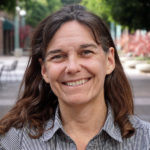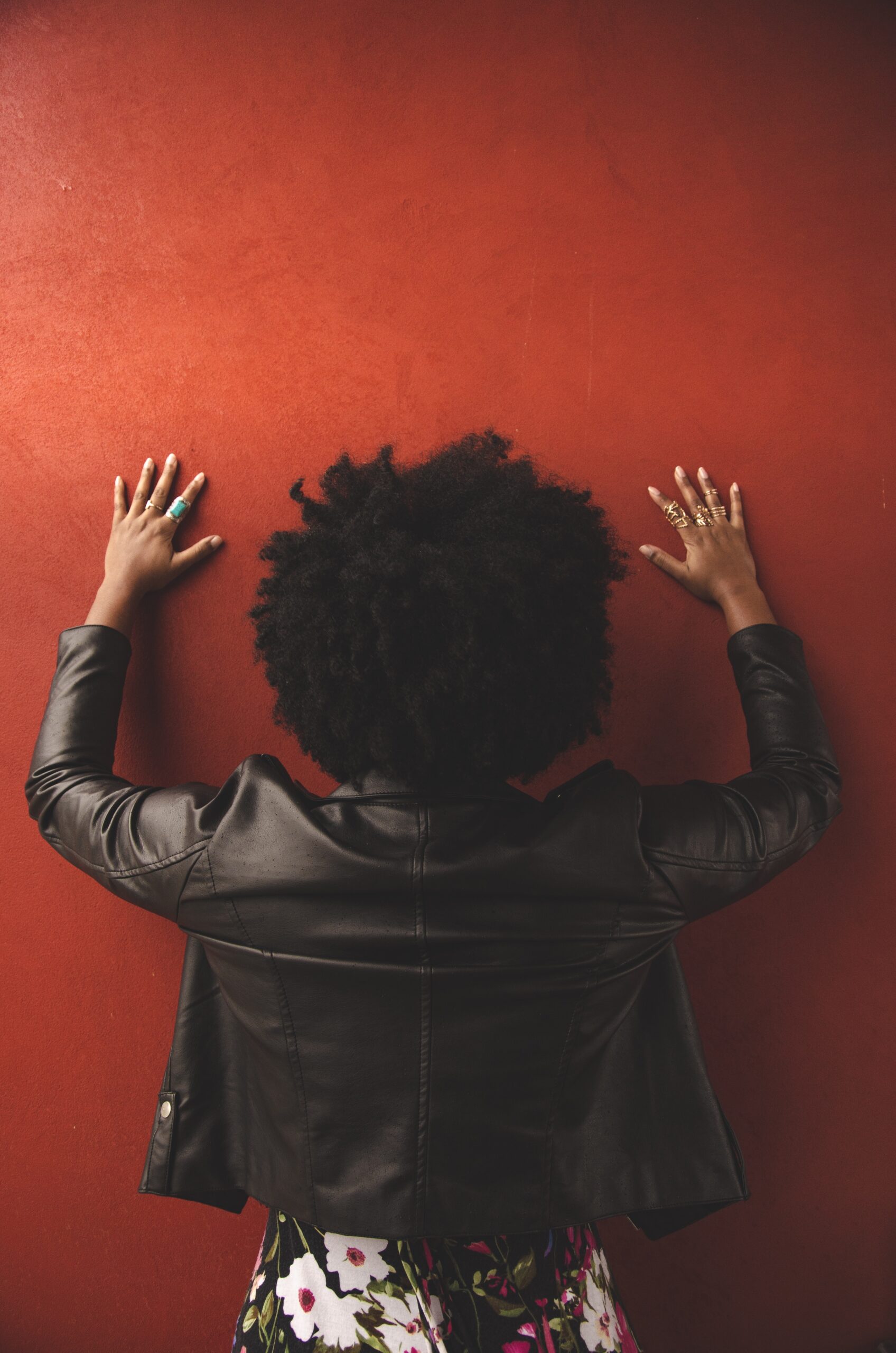

CAROLYN JONES
 ALISON YIN FOR EDSOURCE
ALISON YIN FOR EDSOURCE
While nearly all #students have faced #mentalhealthchallenges during the #pandemic, rates of #depression and #anxiety are higher among #Black #students.
Nearly everyone has experienced a degree of #anxiety or #depression due to the #pandemic. But for young #Black people also confronting persistent #racism and ever-widening inequities, the current moment has led to an acute crisis in #mentalhealth.
The #suicide rate among #Black #youth, which for years trailed that of #Asian and #white #students, has doubled since 2014 is now twice the statewide average, far exceeding all other groups, according to the California Department of Public Health. Twelve of every 100,000 #Black 18-24-year-olds died by #suicide in 2020. In 2014 the #Black #suicide rate was about 25% lower than that of #white #students and 15% lower than the rate among #Asian #students.
#Black young people are also more at risk of #depression, #anxiety and #stress due to the #pandemic, and the recent spotlight on #police violence against #Black people, according to a December advisory from the U.S. surgeon general. #Gunviolence, climate change and economic uncertainty also play a role.
“The data is absolutely not surprising. … #Black #students are in a crisis nationally,” said April Clay, head of counseling and psychological services at California State University, Los Angeles. “Many #Black #students are experiencing paralyzing #anxiety and #grief. It’s hard to talk about, and it’s hard for them to find help.”
#Black people generally have suffered disproportionately during the #pandemic, with higher death rates, higher hospitalization rates and less access to #healthcare, according to the #CentersforDiseaseControlandPrevention. But the murder of #GeorgeFloyd in May 2020 brought forth months of intense media coverage of #police brutality and #racism, which some #Black young people said they found deeply stressful.
“The disparate impact of #Covid, plus these additional pressures, have brought #Black #youth to the brink,” said Lishaun Francis, director of #behavioralhealth at Children Now, a research and advocacy organization that recently released a report detailing the challenges facing young people in California, including #mentalhealthstruggles among #Black #youth.
Misdiagnosis also plagues #Black #youth struggling with #mentalhealth, Francis said. A #Black #student who’s acting out in class too often faces discipline rather than counseling, and #Black people with more serious #mentalhealthchallenges, such as #schizophrenia, are more likely to end up in #police custody than in psychiatric treatment.
#James Donaldson notes:
Welcome to the “next chapter” of my life… being a voice and an advocate for #mentalhealthawarenessandsuicideprevention, especially pertaining to our younger generation of students and student-athletes.
Getting men to speak up and reach out for help and assistance is one of my passions. Us men need to not suffer in silence or drown our sorrows in alcohol, hang out at bars and strip joints, or get involved with drug use.
Having gone through a recent bout of #depression and #suicidalthoughts myself, I realize now, that I can make a huge difference in the lives of so many by sharing my story, and by sharing various resources I come across as I work in this space. #http://bit.ly/JamesMentalHealthArticle
Order your copy of James Donaldson’s latest book,
#CelebratingYourGiftofLife:
From The Verge of Suicide to a Life of Purpose and Joy
For Destiny Tillear, a junior at Middle College High #School in south Los Angeles, the low point came in spring 2020. Her mother, a postal worker, and her stepfather, who works at an oil refinery, were both working full-time in-person, which left Destiny to care for her 2-year-old brother all day while she was in distance learning. One morning she was taking a timed English test when her brother started crying because he needed a diaper change. As the timer ticked away, Destiny tended to the howling toddler and hoped she wouldn’t fail the test.
Her grades did in fact drop during remote learning, which only exacerbated her feelings of despair. She had hoped to attend a top-tier college followed by law #school, but that dream seemed to be fading as the #pandemic wore on.
“One day (when #school returned to in-person instruction) I was stressing about grades and I started crying at #school,” Destiny said. “A #counselor saw me and brought me to her office. She didn’t judge me at all, she just listened. It definitely worked. I saw her a few times. I’m really grateful my #school offered that.”
These days, Destiny finds comfort in reading — sometimes a book a day — and watching her little brother grow up. She’s adjusted her college expectations and knows she can always see a #counselor when she needs to.
Joy Menh, a junior at Humboldt State University, said college has been a particular challenge during the #pandemic. The daughter of immigrants from Liberia, she felt especially isolated during remote learning, trying to balance her studies with work, financial worries and concern about her family contracting #Covid. Then the #police murder of #GeorgeFloyd happened.
“I can discuss it, but it’s very hard for me to see these #Black deaths continue happening,” she said. “There’s so much craziness, it’s hard for me to focus.”
She found the Humboldt counseling office helpful, although she thinks that colleges should remove some of the hurdles – such as long delays to see a #counselor – for #students who need help, especially those experiencing a crisis. She’s also found solace in helping other #Black #students at her #school, where she works at the campus multicultural center.
“I try to surround myself with friends and do things that keep me hopeful, like focusing on #school and planning for the future,” Menh said, noting that she hopes to go to law #school eventually.
The East Oakland #Youth Development Center has been tending to the #mentalhealth of #Black #youth for more than 40 years. But the #pandemic has ushered in unprecedented challenges, said Executive Director Regina Jackson. For more than a year, #students were unable to connect with friends, and many were stuck at home under crowded, stressful circumstances. To cope, some #students withdrew emotionally, while others acted out.
“Let’s face it, this #pandemic has impacted us acutely, especially those of us who are impoverished,” Jackson said.
To help, the center has been doing what it has always done: It offers a safe place for #students to talk, do art projects, play outside, study and relax. During the worst months of the #pandemic, when the center closed, Jackson and her staff sent art supplies and books to children’s homes, organized online parties and encouraged them to talk about the #stress they were experiencing.
“We treat our young people like they’re the subject of their own stories. We allow them to express themselves freely,” Jackson said. “It’s about trust, empowerment, curiosity. … That will walk you back from giving up. … When it’s working, we can see the smiles through the masks.”
One of Jackson’s #students, Myah White, said that seeking help can sometimes feel difficult because of the #stigma associated with #mentalillness. Myah said that can add another layer to young people’s feelings of #isolation.
“#Depression and #anxiety are things you don’t always talk about in the #Blackcommunity,” said White, a senior at St. Joseph High #School in Alameda. “Our #parents are dealing with their own #trauma. You just want to be ‘normal.’ With so many hardships, we want to be known for perseverance and strength.”
White found relief by getting involved in equity and diversity issues at her #school, which allowed her to talk about the complicated and frustrating emotions she was experiencing and educate her non-#Black peers on issues related to #racism. The past two years have inspired her to change her career plans, to become a pediatrician serving #Black and low-income communities.
Clay, from Cal State Los Angeles, said that one way to reduce #stigma is to normalize conversations about #mentalhealth at #school. #Schools should encourage #Black #students to talk about their feelings in a way that’s empowering, so they feel less alone and more confident describing the conditions that are causing them #stress. #Schools should also hire more #Black #counselors, whom #Black #students are more likely to trust and feel comfortable confiding in.
Like White, Selina Villesanor, a junior at Oakland High #School, also altered her plans due to her hardships during the #pandemic. In March 2020, a close uncle died of #Covid, and Villasanor sank into a #depression. She felt like her “world was falling apart” and had nowhere to go for help.
Introspection and counseling helped her pull through.
“The #pandemic sparked a spiritual journey for me. It showed me who I am, my strengths and weaknesses,” she said. She now uses that knowledge to help her friends, supporting those who need help. She’s also thrown herself into a new hobby — baking. “I used to sulk. Now I whip up some cookies and cupcakes that I know everyone will love. Cooking helped me to cope.”
Villasanor hopes to study psychology and become a #therapist for young people. And someday start her own cooking business.
Leroy Mitchell, a #mentalhealth training manager at the #Black Emotional and #MentalHealth Collective in Los Angeles, said #Black young people grappled with #anxiety and #depression long before the #pandemic and Floyd’s murder. But recent events have shed light on their plight.
In #schools, he said, the most important thing #teachers and other #adults on campus can do is listen. If #students don’t open up, #adults should try different approaches, such as asking them to play a song that expresses their feelings, or do some artwork, or show #TikTok videos that reflect their emotions.
“We have to acknowledge the ways our #Black #youth are experiencing #mentalhealthchallenges,” Mitchell said. “But it’s not just listening. We have to put into action the things they’re saying and hold ourselves accountable.”
As bleak as life seems now, Mitchell is confident that this generation will endure and even thrive.
“We are in a crisis. But I have a strong belief in #Black #youth,” he said. “We come from a legacy of surviving. We come from a legacy of healing. We just need to make room for them to practice their brilliance. … #Black #youth just simply ‘being’ is the most beautiful thing I can think of.”





